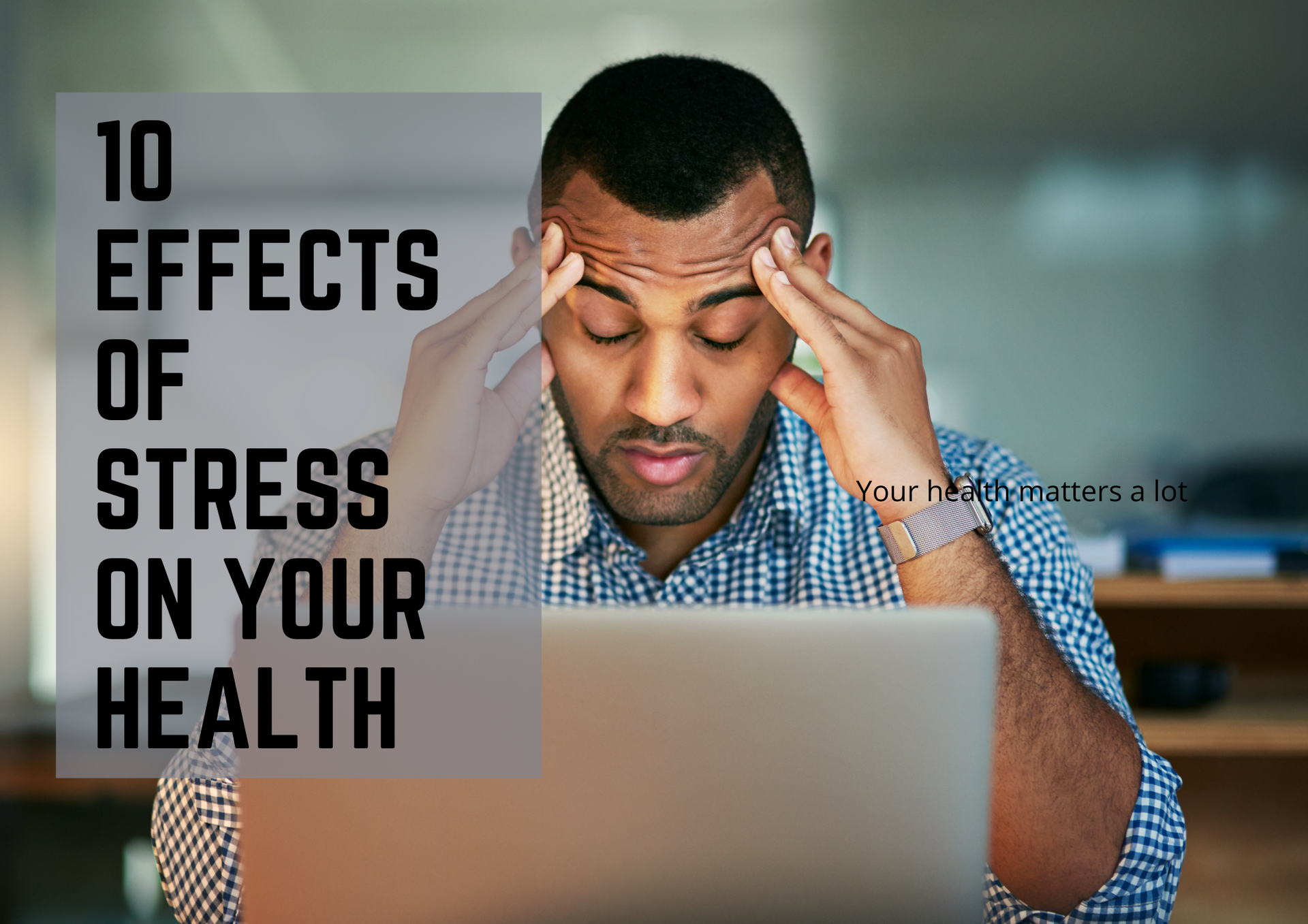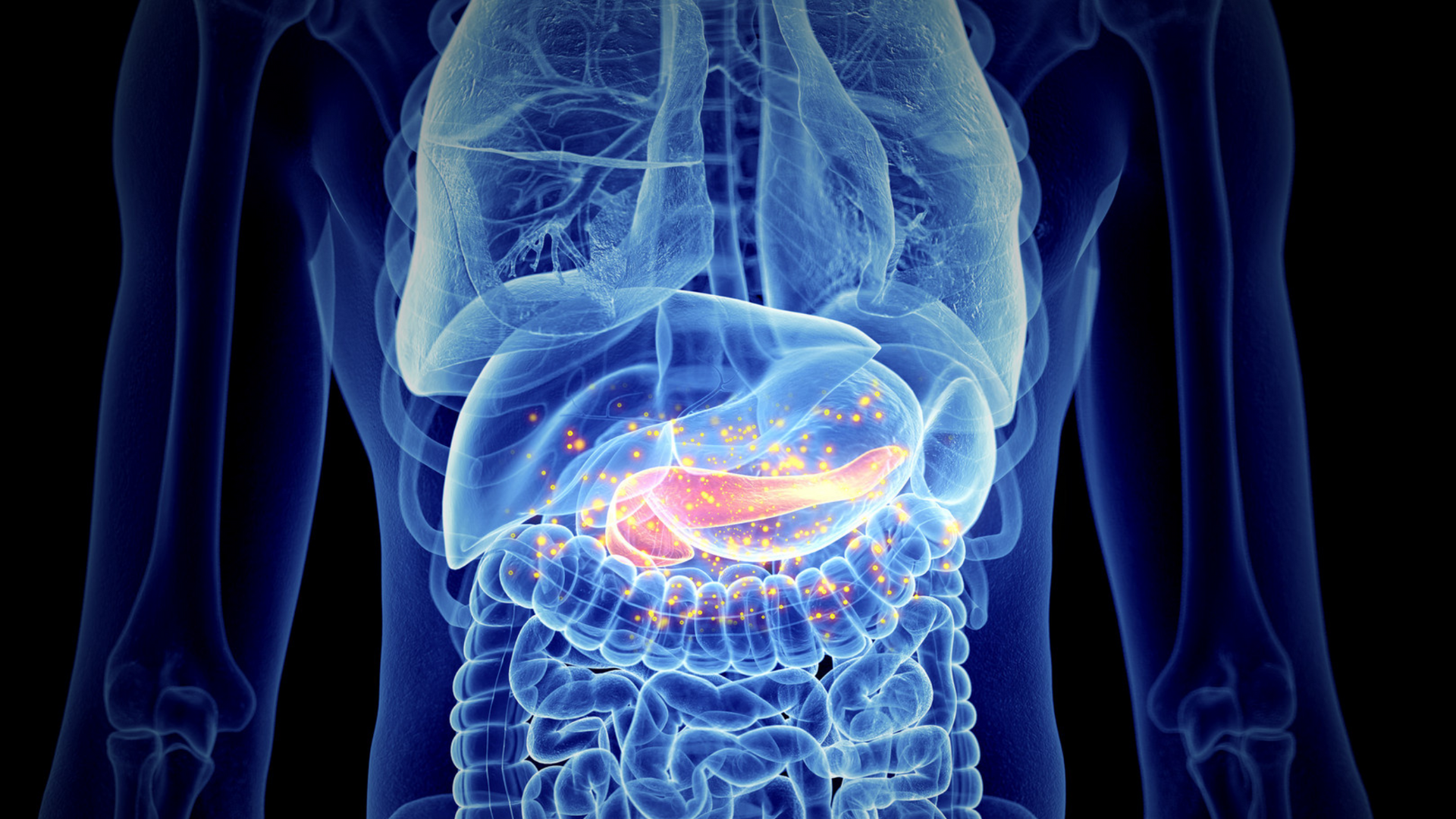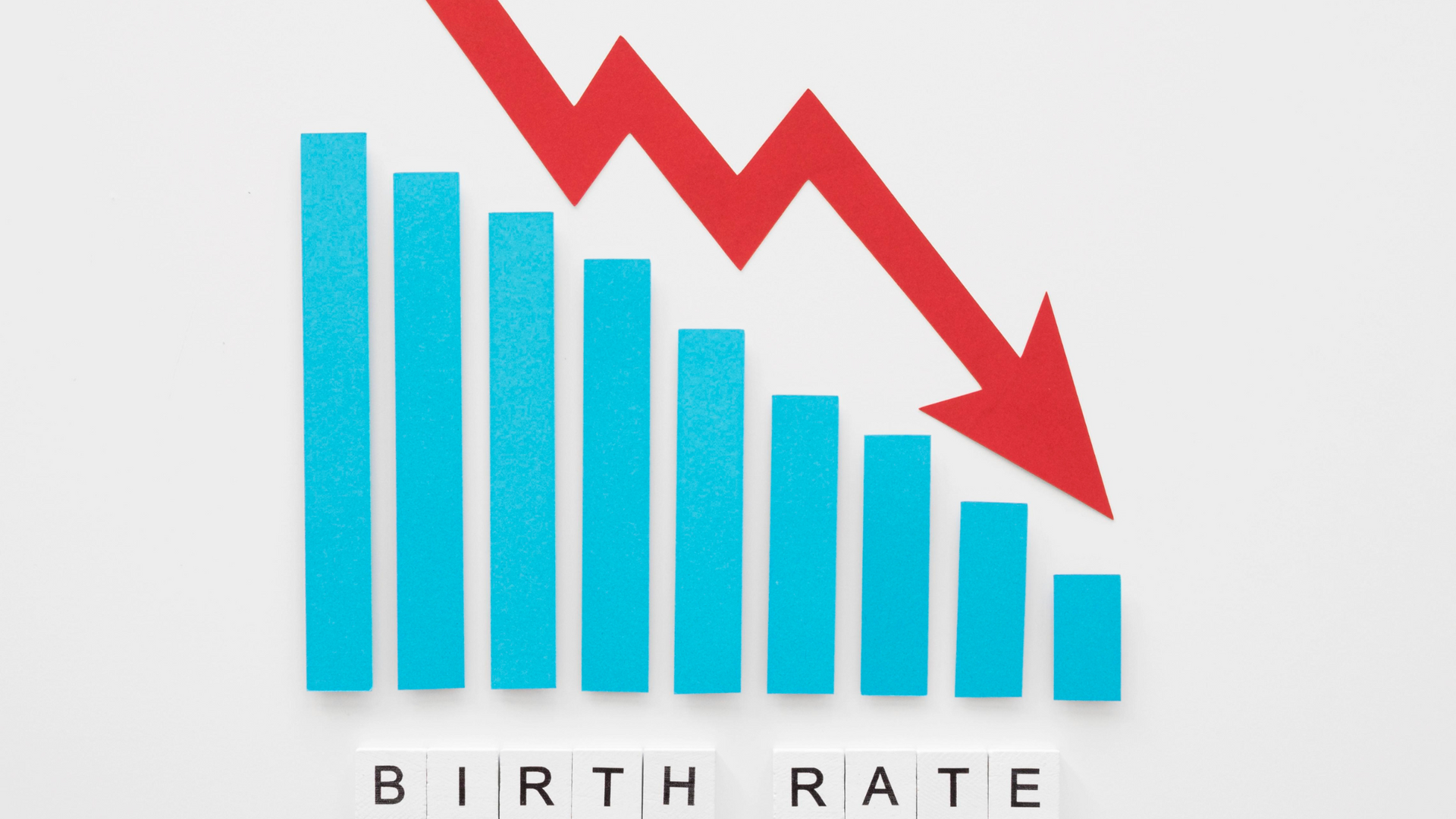10 EFFECTS OF STRESS ON YOUR HEALTH

Stress can have a dramatic, damaging effect on your health that can threaten to tear your life apart.

1) Elevated levels of cortisol - Cortisol is a hormone released in response to stress, but when levels of this hormone are too high for too long, numerous negative effects can occur. Elevated cortisol levels impair the body's ability to respond appropriately to stress, which can lead to weakened immune system function, decrease in muscle mass and bone density, heightened anxiety and depression, chronic fatigue and insomnia, disrupted digestion and metabolism - just to name a few! Stress doesn't always have to be bad for us; however if it persists over an extended period with no chance for restorative respite then abnormally high cortisol production can become threateningly overwhelming.
This is why it's so important not only to acknowledge where our physical or emotional load may be exceeding what we are capable of managing well but also actively put in place restorative measures such as sufficient sleep patterns, nutrition plans that provide balance and consistent times of focused relaxation or calming activities like praying & exercise. In this way we can ensure we keep our cortisol levels at healthy equilibrium.
2) Elevated Levels of adrenaline and other hormones caused by stress can affect your system's ability to regulate itself, leading to a weakened immune system, increased risk of heart disease, gastrointestinal problems' disruption and even hair loss. These hormones produce an increase in heart rate and blood pressure, increased glucose metabolism that allows us to suddenly have excess amounts of energy, breathing shallowly and rapidly, a decrease in digestion, and increases in anxiety. With these reactions moderating how we respond to challenging situations- whether that be physical or mental strain- it’s essential to recognize when we start feeling overwhelmed and take necessary measures to combat this elevation. Relying on relaxation techniques such as calming breathing exercises are a simple but effective way to quell these biological responses and put our minds back at ease.

A surge of adrenaline can send shock waves throughout our bodies, bringing with it both positive and negative health effects. Short-term, the hormone can allow us to lift heavy weights we wouldn't normally be able to manage and perform tasks with unparalleled focus; however, prolonged exposure to elevated levels of adrenaline may have devastating consequences on our physical and mental health, such as fatigue and depression caused by relentless cortisol production.

3) Stress can bring insomnia or over-sleeping in its wake; wreak havoc with concentration and decision-making abilities; stress inducing insomnia or oversleeping, impacting health and lifestyle choices in an agonizing manner. Unable to achieve those vital restorative hours of sleep due to stress, individuals may find themselves drained, exhausted and vulnerable the following day, unable to concentrate on work or school. Coupled with this night time affliction comes its over compensatory twin - oversleeping. You can never make up for lost sleep; long periods spent motionless in bed often result in a level of inertia difficult to escape from during daylight hours, leaving a person feeling groggy, unfocused and low. Stress curtails the natural sleeping patterns of the body which makes it difficult to engage with life's activities productively - a reminder that effective management is key!

4) Increase in appetite while decreasing energy levels -The human body is an incredible machine that can react to stress in some truly dramatic ways. When overwhelmed by anxiousness or fear, many individuals experience a heightened appetite accompanied by an unusually low level of energy. It is believed that this physiological response occurs as a result of the body's ability to try and replace necessary nutrients that were lost as a consequence of severe mental strain due to cortisol and adrenaline being released into the bloodstream. In stressful situations, the brain sends signals to our bodies telling them we need more resources for nourishment, all while suppressing our metabolism which decreases our ability to burn calories efficiently. Unfortunately, this means managing stress can be extremely difficult, as it often leads us to crave comfort foods during times of distress – creating a dangerous cycle between anxiety, eating, and eventually weight
gain.

5)
Lower fertility levels - Recent studies have discovered that it isn't just our mental well being that suffers from high stress levels; it can also have a dramatic effect on fertility. With many of us juggling careers, demands of family and personal health, overwhelming levels of stress can cause hormones to become imbalanced, leading to ovulation issues which in turn reduces fertility. And for those trying for a baby, such news is nothing short of devastating. If you're in this situation, reach out for help as soon as possible as addressing the root cause could see infertility rates significantly reduced.

6) Cause headaches and other physical pain - Even though stress is more often felt mentally and emotionally, it can cause the body to clench up due to the constant tightness of muscles that occurs as a response to tension. By spending time battling with stress, the body will naturally become exhausted and begin to ache; headaches and muscle pain are common results. Stress affects us on such a deep level that it borders on tangible - yet we still so often choose to ignore it in hopes that it'll go away. Little do we know, this only serves worsen matters - allowing stress to cause further damage until our minds cave under its pressure and our bodies breakdown in agony.

7) Unhealthy cycle of addictive behavior - Stress can be a destructive and insidious force, creating an unhealthy cycle of addictive behavior from which it feels impossible to escape. It has the power to take over our lives and plunge us deep into a vortex of despair - we seek comfort in whatever form we can find and the vicious cycle begins. As our lives become wrapped up in these habits, it becomes harder and harder to break out of them. We may recognize that these practices aren't healthy, but they become so deeply entrenched that any step toward real change seems insurmountable. We are endlessly entangled in this swirl of anguish, trying desperately to claw our way back to reality with waning hope. In order to disrupt the cycle, we must take assertive action by seeking help and finding healthier coping mechanisms – only then can true healing begin.

8) Poor posture - As the mind becomes overwhelmed with anxieties, worries and fear, tension builds in the body and begins to manifest as poor posture - slumped shoulders, rounded spine and heavy arms. When neglected for too long this takes a toll on both physical and mental health as bad posture not only impacts one's ability to breathe properly, but it also creates feelings of low self-confidence while adding to one's overall symptoms of stress. The truth is that you may not be aware of the damaging effects of stress until it has already taken hold - leaving you with an irreversible form of pain that can leave your body stiff and rigid. Taking steps to reduce or manage stress is key to maintaining good posture; allowing you to move freely through life with comfort and confidence.

9) Muscle tension - stress is enough to make a person's muscles tense and rigid; as if they are bracing for the worst. Stress has an immediate and dramatic physical response in the body, from an increased heart rate to shallow breathing patterns. Muscle tension due to stress can further cause headaches, anxiety, back pain, joint aches and insomnia - all uncomfortable ailments that can obstruct day-to-day living. This menacing adversary can cause worry typically associated with foreseeing a negative outcome, leaving its vicarious victims feeling helpless and fatigued. Stress gives muscle tension its unwelcome marching orders; one must be mindful of the object of their anxieties and strive wholeheartedly to break free from its siege on physical well-being.

10) Anger Burst - The human body has always had a release valve and, when under intense stress, anger can be that valve overflowing and bursting forth. Whether it's at work or in our personal lives, stress can be the precursor to an uncontrollable outburst of fury that can leave those around us wondering what just happened. It seems as though something snaps inside us and suddenly there is no way to control our reaction even if we want to; for we are feeling emotions so deep and powerful that only one force - anger - can escape from its confinement. Stress makes anger burst.
The numberless ways that stress can manifest physically are dizzying — but undeniably real. Stressing about the potential for these very real effects is only likely to further compound the issue...so take care of yourself!
